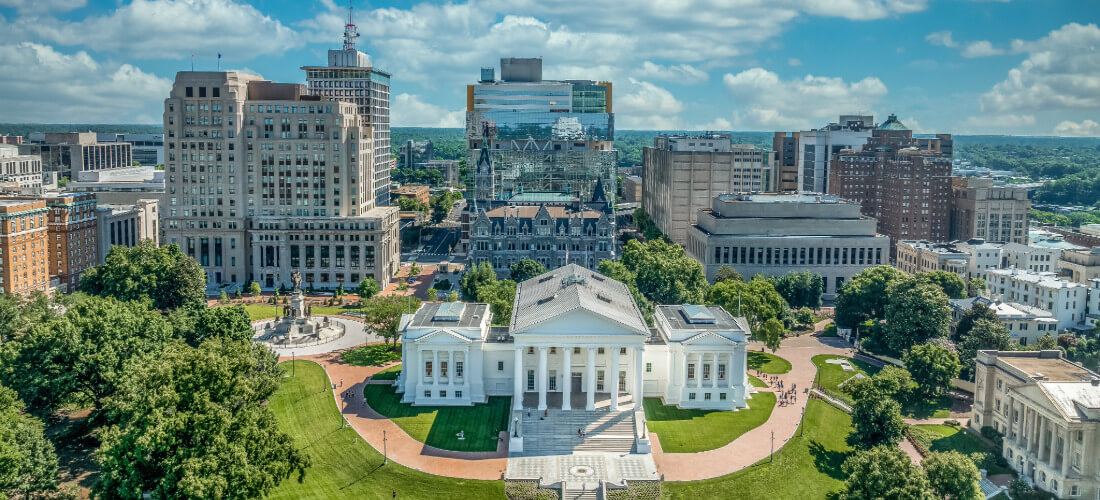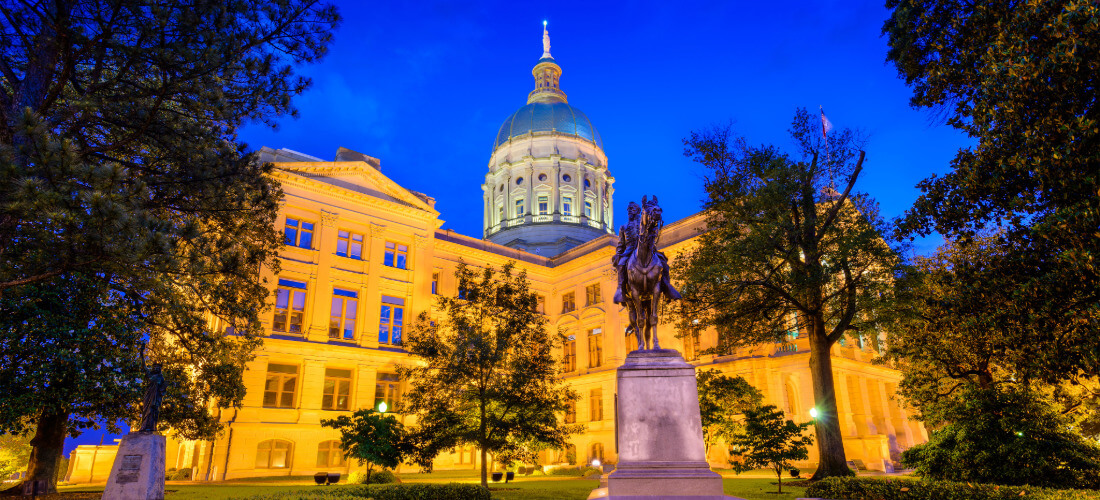
This article is part of an ongoing series of reports on the state of short-term rentals in the U.S. You can view our other reports here.
Like many other areas of the country, local and state officials in New York are currently navigating a balancing act between giving short-term rental (STR) operators the opportunity to run their business while simultaneously meeting regulatory needs and addressing the concerns of those living or looking to live in the state.
Further, while the STR industry brings its fair share of challenges to cities and towns, it also presents an opportunity for much-needed revenue. Here’s a look around the state of New York at some of the approaches local officials are taking to regulating, tracking, and collecting revenue from short-term rentals.
Saratoga Springs
Drawn to the city’s horse racing events and concerts held at its performing arts center, Saratoga Springs sees an influx of visitors every summer—many of whom seek out STRs during their stay. Piggybacking on legislation introduced at the state level—which includes requirements for registering STRs, keeping track of two years’ worth of occupants, and standardizing safety requirements—local officials are pushing for a local registry to keep track of housing data and ensure taxes are being paid on STRs.
Buffalo
In Buffalo, where officials passed regulations focused on the safety of STR occupants and surrounding neighbors after a series of incidents at rental properties, the city has experienced difficulty obtaining recent and historical data on the true number of STRs in the area. This despite requiring all STR operators to register with the city. Without that data, the city has primarily had to rely on reports from neighbors to enforce compliance.
With rules such as annual safety inspections of the properties, STR bans in multi-family dwellings, and special permits in certain zones for STRs that are not occupied by their owner, the city is looking for ways to better keep track of the many unregistered STRs. Additionally, the county is proposing a new 3% tax for STR renters, similar to taxes travelers pay when they book a hotel room.

Montauk
In the beach resort area of Montauk in the Hamptons, officials have set strict rules including a two-rental limit every six months on stays shorter than two weeks, which led one violator to face potentially $200K in fines last year. Montauk also requires all rental properties to be registered and limits the number of STRs allowed.
North Elba
In North Elba, officials approved regulations to help control the number of STRs in the area while still embracing the revenue the STR industry brings. The new laws prohibit new unhosted STRs in residential areas, cap the number of permits in other areas, implement a waitlist when the cap is exceeded, and require annual permit renewals. North Elba also uses some of the permit fees to pay for tracking and compliance software, as well as directing some of the revenue generated through tax to a grant program for local projects.
Columbia County
In Hudson, the county seat of Columbia County, officials have adopted an approach many other municipalities have taken to regulating STRs by limiting the amount of time that can be booked for stays per year. But unlike some of the more restrictive maximum allotted days, such as in the aforementioned Montauk, Hudson gives STR operators more time to rent out their homes: 60 days per year, with the requirement that the owner lives in Hudson for 50 days each year.
Ulster County
Ulster County is looking to increase its occupancy tax from 2 percent to 4 percent. Despite a strong tourism industry and an STR market that makes up 12 percent of the county’s rental units, Ulster County’s occupancy tax is significantly lower than many of its neighboring counties. Ulster County Executive Jen Metzger suggested a portion of the revenue be used toward housing.
A Guide to Short-Term Rentals for Local Governments
New York City
New York City could see thousands of listings removed following new rules that will impact all of the city—from Manhattan to Brooklyn. Local Law 18 requires hosts to register for an operating license in order to run an STR and bars platforms like Airbnb and Vrbo from processing payments for unlicensed listings. Among the rules for a legal STR in NYC: limiting the number of travelers to two, requiring the host to reside in the dwelling, and requiring the host to provide proof they live inside the rental.
Niagara County
In Niagara County, a number of towns have responded to an increase in issues like parking congestion and noise by working to establish STR rules and regulations. The town of Niagara is considering requiring special use permits to operate STRs, which would also limit the zones in which STRs can operate.
In neighboring Niagara Falls, a hotline was established to help residents report any issues or lack of compliance they witness at STR properties. The town of Lewiston approved a six-month moratorium on STRs in order to get the town code, written in the 70s, up to date to account for STRs.
Effectively managing STRs starts with the right tools
Managing short-term rentals is a challenge for municipalities of all sizes. Do you have the right tools for the job? Learn how GovOS can help simplify STR tasks like identification and tracking, compliance, and tax collection.









